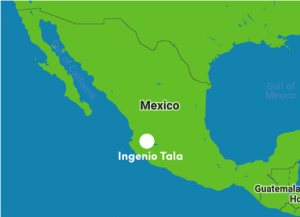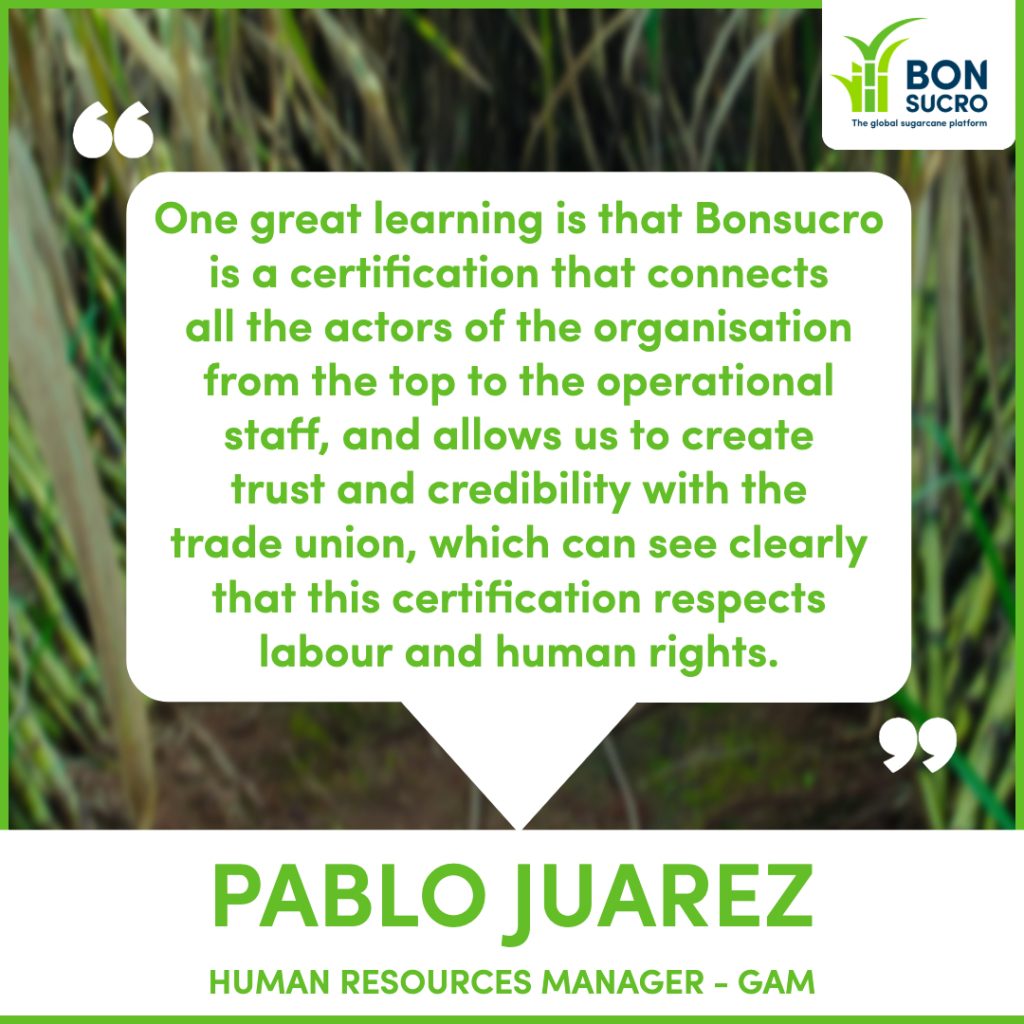19th July 2019
 Sugarcane is an important crop in Mexico. It has history of cultivation dating back several centuries, and today the sugarcane industry contributes approximately $2.59 billion to the national economy. According to some estimates, the sector generates 930,000 direct jobs and 2.2 million indirect jobs across 15 states and 227 municipalities. It’s not all plain-sailing for the Mexican sugarcane industry however, with poor irrigation and unreliable rainfall, production inefficiencies, cane burning and air pollution just some of its sustainability challenges.
Sugarcane is an important crop in Mexico. It has history of cultivation dating back several centuries, and today the sugarcane industry contributes approximately $2.59 billion to the national economy. According to some estimates, the sector generates 930,000 direct jobs and 2.2 million indirect jobs across 15 states and 227 municipalities. It’s not all plain-sailing for the Mexican sugarcane industry however, with poor irrigation and unreliable rainfall, production inefficiencies, cane burning and air pollution just some of its sustainability challenges.
Ensuring the sustainability of sugarcane production in the country is therefore paramount. It is highly encouraging then that 2019 has seen Bonsucro certification reach Mexico for the first – and now second – time. Ingenio Tala, a sugarcane mill located in Jalisco state, became the second Mexican mill to achieve certification to Bonsucro’s Production and Chain of Custody Standards. The mill sits just outside of the city of Guadalajara and is part of Grupo Azucarero Mexico (GAM).
Demonstrating Responsible Production
According to Juan Cortina Gallardo, the General Director of GAM, Ingenio Tala looked to Bonsucro certification as a way of positioning the business in the market whilst demonstrating the sustainability of their operations: “With Bonsucro certification we are positioning ourselves as a global company that has the capacity to generate profitability, with a business vision that ensures reduction of environmental and social impacts that can arise from the activity of sugarcane production”. Juan believes that achieving certification will benefit their client relationships: “With Bonsucro certification, we can demonstrate to our clients that the sugarcane with which we make our sugar complies with Bonsucro’s Standards”.
Implementing Changes

The Bonsucro Production Standard addresses social, environmental and economic sustainability. To become certified, a mill must comply with all of the core indicators (such as no child and forced labour), and 80% of the indicators overall.
According to the mill, some of Ingenio Tala’s operations were already in line with the Standard’s requirements: “During the certification process we were able to identify areas of opportunity such as documenting and standardising actions that were already being carried out, such as everything related to research and development, greater commitment to work in the field and identification of environmental, social and labour impacts,” says Rocio Piedra Aviles, Sustainability Manager.
Other areas needed more work: “We have improved our agricultural best practices and processing, as is the case to ensure that the agrochemicals being used in the field are authorised by Mexican law and the Stockholm, Rotterdam and Montreal conventions”, says Carlos Vergara Ocariz, Responsible of Owned Land. “As per the Bonsucro Standard, we have also decreased the usage of agrochemicals, and the use of water for irrigation has been made more efficient, as well as increasing efficiencies for the process of processing cane into sugar.”
An environmental management plan has been implemented both in the field and in the factory with the objective of identifying the impact of their activities, and the mill has put plans in place to mitigate negative impacts of production and processing. One key learning was to “standardise and document the activities that are carried out in the field”, says Rocio Piedra Aviles, “as well as the awareness of cane producers on how they can contribute to minimising negative impacts when carrying out the activities of their work”.
Leveraging Support
Many mills looking to obtain Bonsucro certification collaborate with other organisations to support the process. PepsiCo, as one of Ingenio Tala’s clients, provided significant support to the mill along with other organisations. “PepsiCo is one of our major customers and the one that supported the mill to achieve this certification, along with the consultancy of Peterson and Proforest,” says José Alejandro Guevara Alba, Responsible of Operations. “We deeply appreciate their support.” Both PepsiCo and Proforest are members of Bonsucro.
Natasha Schwarzbach, Sustainable Commodities at PepsiCo commented “We appreciate the commitment of our supplier GAM to sustainable sugarcane in Mexico and congratulate them on achieving Bonsucro Certification.”
José stresses, however, the importance of support from employees. “This achievement would not have happened without the commitment and involvement of each and every one of our partners throughout the value chain, from workers in the field to those transforming cane into sugar. The company is deeply grateful.”
Want to know more?





